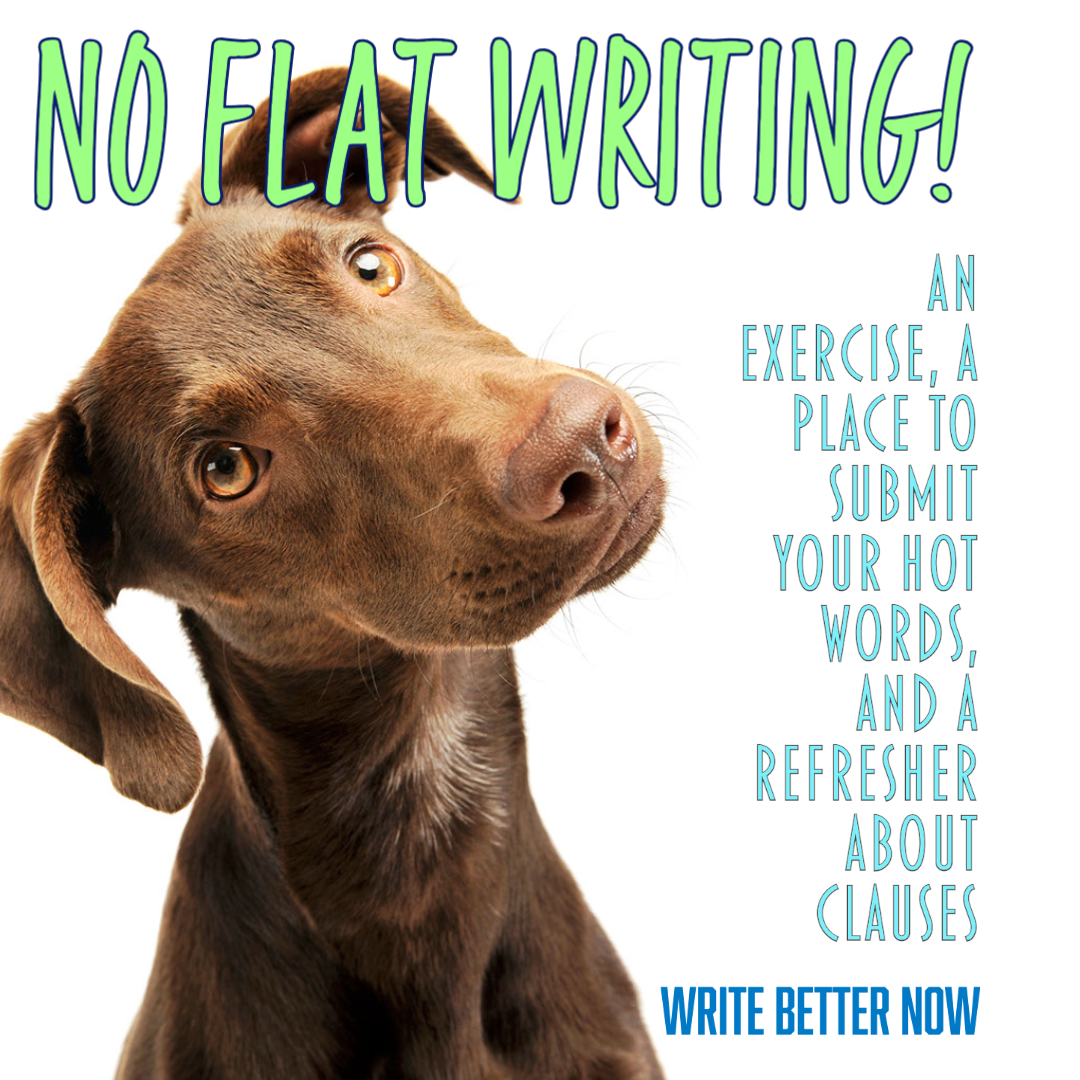No Flat Writing
An exercise, a place to submit your hot words, and a refresher about clauses
A lot of writers will worry that their stories seem flat. There’s a reason that they are worrying about that and it’s one of the core elements of good writing.
Ready?
You want to vary your sentence structure.
Take a bit of writing that you’ve done that feels flat—or maybe even one that doesn’t. Count the words in your sentences for two or three paragraphs.
Are they all five words? Twelve? Twenty-seven?
That robotic sameness in sentence length is one of the main reasons that writing can feel flat.
It’s like those ancient Dick and Jane books.
See Dick run.
See Jane skip.
See Dick wave.
The other big bugger is when all of your sentences are simple and declarative.
I walk to the forest. The trees are gracious, tall. I inhale the pine scent.
There is actually a whole, entire world of different sentence styles that writers can use and when you use them? That’s when you make your writing shiny and sexy and all the good things.
The names for these structures are pretty boring, honestly, but we’ll try to look beyond that, right?
Simple – You have one main clause.
Carrie is the best wife.
Compound – You have more than one independent clause. You probably use a conjunction.
Carrie wants to get another dog, but Shaun keeps saying no.
Complex – Oh, the sentence that probably has to pay for a therapist or is reading Foucault obviously in the park. This sentence has an independent clause and a subordinate clause. It’st the BDSM of sentences.
When hell freezes over, we will allegedly get another dog.
Compound-Complex – It sounds like a place with a cult, right? But it’s just a sentence with at least two independent clauses and one subordinate clause.
Carrie really needs a new dog to love, so Shaun said that they would get one when hell freezes over, so Carrie immediately got some dry ice and sent some down to Lucifer.
Refresher moments:
What’s a clause? A bunch of words chilling out together and one of those words in the group is a verb and another is a noun. Fancy people call the verb, the predicate, but we aren’t fancy here.
What’s an independent clause? It is a bunch of words that has a subject and a predicate. It is grammatically complete all by itself and doesn’t need anyone. Not any other words to stand alone! Darn it.
What’s a subordinate or dependent clause? A bunch of words that needs other words to be a sentence. This poor beautiful baby cannot stand alone and be complete, kind of like a protagonist in a Hallmark romance.
PLACE TO SUBMIT
Granum Foundation Fellowship Prizes (Deadline August 1)
The Granum Foundation Prize ($5000) will be awarded annually to help U.S.-based writers complete substantive literary works—such as poetry books, essay or short story collections, novels, and memoirs—or to help launch these works. Additionally, the Granum Foundation Translation Prize ($1500) will be awarded to support the completion of a work translated into English by a U.S.-based writer.
Funding from both prizes can be used to provide a writer with the tools, time, and freedom to help ensure their success. For example, resources may be used to cover basic needs, equipment purchases, mentorship, or editing services. Competitive applicants will be able to present a compelling project with a reasonable timeline for completion. They also should be able to demonstrate a record of commitment to the literary arts.
QUICK WRITING EXERCISE
Who are you?
Write your name.
Write the name you’d rather have—if you’d rather have a different one.
Write down the most vivid childhood memory you have. Focus on the details and the emotions.




